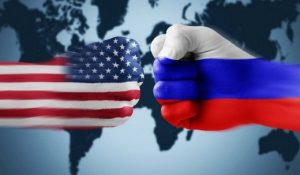
Views: 3700
There was an interesting announcement recently that went almost entirely unnoticed in the Canadian media.
On June 17, Peter Szijjarto, foreign minister of Hungary’s centre-right government, made the startling declaration that his national security forces will erect a four-metre wall along the entire 175 kilometres of shared border with Serbia.
Szijjarto’s rationale for resorting to such a drastic measure results from a months-long flood of asylum seekers pouring into southern Hungary. While tens of thousands of these desperate illegal immigrants have been caught, detained and returned into Serbia, the vast majority have used the processing time for their asylum applications to simply disappear into other western European countries.
This, of course, explains why there is no public outcry from other members of the European Union over Hungary’s decision to fence out this wave of desperate humanity.
For impoverished Serbia, staunching the flow of these refugees at its northern border has generated the opposite reaction.
“I thought the Berlin Wall had fallen, but now new walls are being constructed,” stated Serbia’s foreign minister, Ivica Dacic, referring to the Cold War barrier that stood from 1961 until 1991″.
“We are absolutely and fiercely against (Hungary’s) decision to build a fence.”
While the nationalities of those fleeing through Serbia into Hungary and beyond include Syrians, Somalis and even Afghans, the irony is that the vast majority of asylum seekers are ethnic Albanians from Kosovo.
The most recent exodus began in earnest in the fall of 2014, when the Serbian government relaxed travel restrictions on Albanians entering from the declared independent state of Kosovo. Serbia has never recognized Kosovo’s 2008 declaration of independence and still legally considers the region to be sovereign Serbian territory.
In 1999, Kosovo was ravaged by a brutal civil war between ethnic Albanian separatists and Serbian security forces. The root cause of the public discontent was a severely depressed economy, overpopulation and unemployment. The Albanian underworld was able use that unrest to ignite and impassion a wave of nationalist sentiment that soon boiled over into a full-scale armed insurgency.
 That year was the 50th anniversary of NATO and, given the collapse of the Soviet Union in 1991, there was a strong desire for NATO leaders to prove that the alliance was still relevant. Thus, NATO threw its full weight behind the Albanian Kosovo rebels.
That year was the 50th anniversary of NATO and, given the collapse of the Soviet Union in 1991, there was a strong desire for NATO leaders to prove that the alliance was still relevant. Thus, NATO threw its full weight behind the Albanian Kosovo rebels.
In the spring of 1999, NATO warplanes, including Canadian CF-18s, launched a 78-day bombing campaign — not just against Serbian military targets in the disputed territory of Kosovo but against civilian infrastructure and utilities throughout all of Serbia. With NATO combat forces, including Canadians, massed in Macedonia for a possible ground war, the Serbian government negotiated a ceasefire on June 10, 1999.
Under the negotiated terms of UN Resolution 1244, Kosovo was to remain the sovereign territory of Serbia after a brief military occupation by NATO troops. Serbian security forces were to resume control of Kosovo’s border crossings and provide protection for the numerous sacred Serbian religious sites and monasteries within the disputed territory.
Of course, that was never actually in the cards. NATO negotiators had never wanted to have ground troops fight their way through Kosovo’s forebodingly steep mountain passes. Therefore, they agreed to all Serbian demands, knowing full well that they would never honour the deal.
In February 2008, that duplicity was formalized when the United States hastily recognized Kosovo’s unilateral declaration of independence and strong-armed allies such as Canada into following suit.
However, the precedent of such declarations of territorial independence based upon ethnic regional majority has prevented many countries from recognizing Kosovo. For instance, Spain, with its Basque separatist movement, and Azerbaijan, with its claim over the region of Nagorno-Karabakh, cannot recognize a unilaterally declared independence.
With Russia using its veto to deny Kosovo membership in the UN and Spain, Slovakia, Greece and Cyprus doing likewise to keep it out of the European Union, Kosovo has remained in a strange quasi-limbo status on the international stage.
What matters most, however, is that at the end of the day, you cannot subsist on flags. Despite its declared independence, unemployment, poverty, corruption and widespread crime are driving a new flood of Albanian Kosovars to seek a better life — anywhere but in Kosovo.
The people of Ukraine who see their salvation in the form of a NATO intervention should take a good look at NATO’s “success” in Kosovo. Short-term military solutions do not solve long-term economic problems.
Originally published on 2015-06-28
Author: Scott Taylor
Source: The Chronicle Herald
Read our Disclaimer/Legal Statement!
Donate to Support Us
We would like to ask you to consider a small donation to help our team keep working. We accept no advertising and rely only on you, our readers, to keep us digging the truth on history, global politics and international relations.
FOLLOW US ON OUR SOCIAL PLATFORMS









